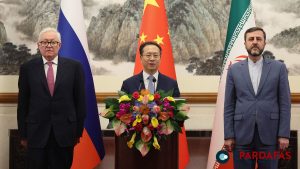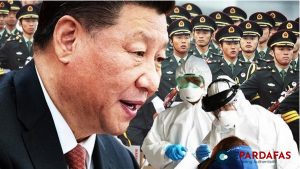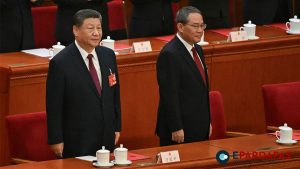
U.N. says China may have committed crimes against humanity in Xinjiang
China’s “arbitrary and discriminatory detention” of Uyghurs and other Muslims in its Xinjiang region may constitute crimes against humanity, the outgoing U.N. human rights chief said in a long-awaited report on Wednesday, Reuters reported.
U.N. High Commissioner for Human Rights Michelle Bachelet, who has faced criticism from some diplomats and rights groups for being too soft on China, released the report just minutes before her four-year term ended. She visited China in May.
China’s “arbitrary and discriminatory detention” of Uyghurs and other Muslims in its Xinjiang region may constitute crimes against humanity, the outgoing U.N. human rights chief said in a long-awaited report on Wednesday.
U.N. High Commissioner for Human Rights Michelle Bachelet, who has faced criticism from some diplomats and rights groups for being too soft on China, released the report just minutes before her four-year term ended. She visited China in May.
It recommended the Chinese government take prompt steps to release all those detained in training centres, prisons, or detention facilities.
“There are credible indications of violations of reproductive rights through the coercive enforcement of family planning policies since 2017,” the office said.
It added that a lack of government data “makes it difficult to draw conclusions on the full extent of current enforcement of these policies and associated violations of reproductive rights.”
Rights groups accuse Beijing of abuses against Uyghurs, a mainly Muslim ethnic minority that numbers around 10 million in the western region of Xinjiang, including the mass use of forced labor in internment camps. The United States has accused China of genocide.
Chinese foreign ministry spokesperson Wang Wenbin described the report as “completely illegal and void”.
“This proves once again that the OHCHR has become a thug and accomplice of the U.S. and the West,” he said during a regular daily briefing on Thursday in Beijing, where he was asked repeatedly about the report.
‘UNHELPFUL POLITICIZATION’
Bachelet, who is from Chile, said her report took “considerable work and review” and emerged in the final moments of her tenure because she wanted to deal with input from the Chinese government last week.
“Dialogue and engagement is about trying to build trust – incrementally – even when it seems unlikely. My own experience in Chile showed me the value of this approach,” she said. “To be perfectly honest, the politicization of these serious human rights issues by some States did not help,” she added. “They made the task more difficult, they made the engagement more difficult and they made the trust-building and the ability to really have an impact on the ground more difficult.”
Dilxat Raxit of the World Uyghur Congress, an international organization of exiled Uyghur groups, said the report confirmed “solid evidence of atrocities” against Uyghurs, but wished it had gone further.
“I regret that the U.N. Office of the High Commissioner for Human Rights did not characterize these extreme atrocities in China as genocide,” he told Reuters in an email.
Reuters reported last month that China had asked Bachelet to bury the report.
Bachelet, 70, plans to return to Chile to retire. No successor has been appointed yet.
Human rights activists hailed the report but said its timing undermined its impact.
“She put out the report – which was her job – but avoided the aftermath. It doesn’t show the necessary leadership on how to take this forward,” said Olaf Wientzek, director of the Geneva office of the German Konrad Adenauer Foundation.
Germany said the report confirmed that “there is cause for grave concern” about gross human rights violations.
“We call on the Chinese government to immediately grant all people in Xinjiang their full human rights. All those arbitrarily detained must be released immediately,” a German foreign ministry spokesman said, adding Berlin would discuss the consequences of the report with its EU and U.N. partners.













Comments